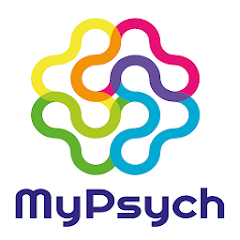Learning Objectives

Psychiatry Undergraduates Learning objectives
Aims of the attachment:
By the end of this block you will have attained knowledge regarding the scientific principles underlying modern psychiatry theory and practice, skills in order to apply this knowledge to clinical situations and attitudes necessary to identify and respond appropriately to psychological distress and disorder, not only in psychiatric settings but also throughout all areas of medicine.
Objectives and Intended Learning Outcomes for the attachment:
Attitudes:
By the end of your attachment in psychiatry you should be able to:
- Respond empathically to mental illness and psychological distress in all medical and broader settings.
- Understand that psychiatric illness creates problems with stigma, how this affects patients and their families, and recognize your role in combating this stigma.
- Be aware of the ethical dilemmas and controversies involved in the diagnosis and management of mental disorder
- Treat patients and their carers with professionalism and confidentiality.
- Understand when the patient’s wish for confidentiality should be over-ridden.
- Appreciate the inter-relationship between physical and psychological symptoms and the need to be aware of psychological factors in all medical conditions
- Understand that your emotional responses to patients and patients’ corresponding emotional responses to clinicians may influence the presentation and management of illness.
- Appreciate the function of the multidisciplinary team and the role of each of its members.
- Recognise when it is appropriate to refer a patient to psychiatry.
Skills:
By the end of your psychiatry attachment you should be able to:
- Conduct a full psychiatric history.
- Carry out a mental state examination, including cognitive assessment.
- Carry out an assessment of capacity.
- Assessment of suicide risk.
- Assessment of risk of harm to others.
- Explain how different biological, psychological and social factors may combine to precipitate psychiatric disorder.
- Provide a differential diagnosis for each patient seen with evidence for and against each diagnosis.
- Devise an appropriate investigation list.
- Describe an appropriate management plan.
- Present clinical findings in a clear verbal or written form.
- Use an interviewing style that is empathic and adaptable to specific situations, including interviewing distressed, disturbed or aggressive patients
- Explain to patients and their relatives the nature of their condition, its management and prognosis.
Knowledge:
During your psychiatry attachment you should gain the knowledge to address the following topics confidently:
Clinical Features and Management
- Schizophrenia and other psychotic disorders, both acute and chronic presentations
- Mood disorders – depression and bipolar affective disorder
- Anxiety – including generalized anxiety disorder, panic disorder, phobias, obsessive compulsive disorder and PTSD
- Dementia
- Delirium
- Personality disorders – especially emotionally unstable personality disorder and antisocial personality disorder
- Adjustment disorders
- Deliberate self harm
- Risk of harm to others
- Drug misuse and dependence
- Alcohol harmful use and dependence
- Medically unexplained symptoms
- Learning disability psychiatry - ???
- Perinatal psychiatry
- Depression and self harm in children and adolescents
- ADHD
- ASD - ???
- Eating disorders
- Forensic psychiatry – common associations between crime and mental illness
- Be able to discuss the prognosis of common psychiatric conditions
Treatment
- Physical treatments – psychosurgery and ECT
- Psychopharmocology–main indications, contraindications and side effects of:
- Typical and atypical antipsychotics
- Selective serotonin reuptake inhibitors
- Nor adrenaline reuptake inhibitors
- Combined reuptake inhibitors
- Tricyclic antidepressants
- MAOIs
- Benzodiazepines
- Mood stabilizers
- Cognitive behavioural therapy – main principles and applications
- Main principles and indications for counselling and psychotherapy
- Main agencies in the community for care and rehabilitation of patients with mental illness
Other
- Describe the doctor’s duties and patient’s rights under emergency provisions of the Mental Health Act